November 2016: Photos from European Dialogues, Pamplona, San Sebastián
jeudi 29 décembre 2016 à 20:55RMS was in Pamplona on November 22nd, to give his speech “El software Libre para tu privacidad y tu control de tu informática,” as part of European Dialogues, a project "designed to foment and promote reflection and debate," a "space in which the citizenry can gather and exchange ideas." The talk was in Spanish, with simultaneous translation into Basque, and took place in the Baluarte Sala de Cámara, before over 350 people—students, alumns, politicians, representatives of nongovernment organizations, and professionals.
Two days later, again as part of European Dialogues, RMS gave the same speech at the San Telmo museum in San Sebastián.”1
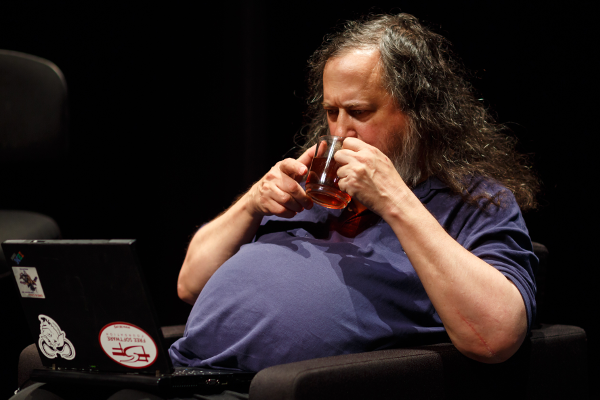
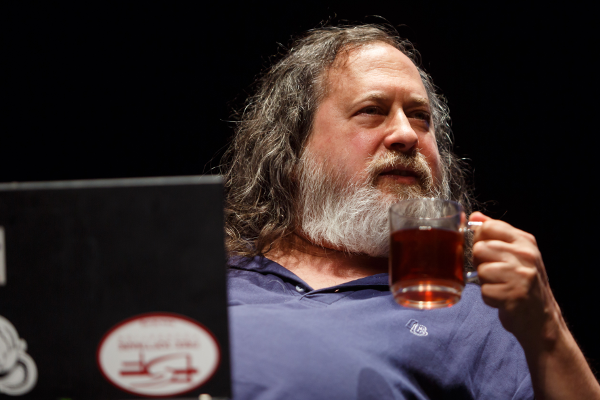
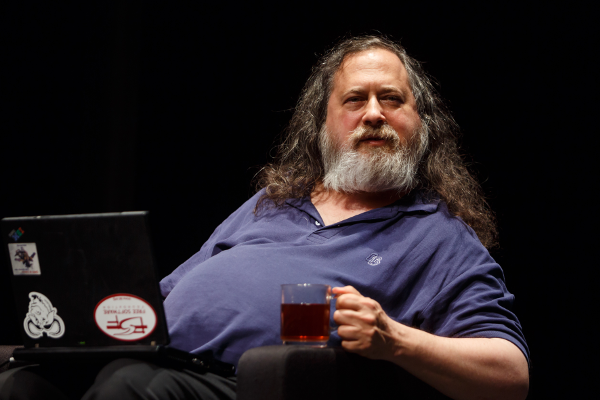
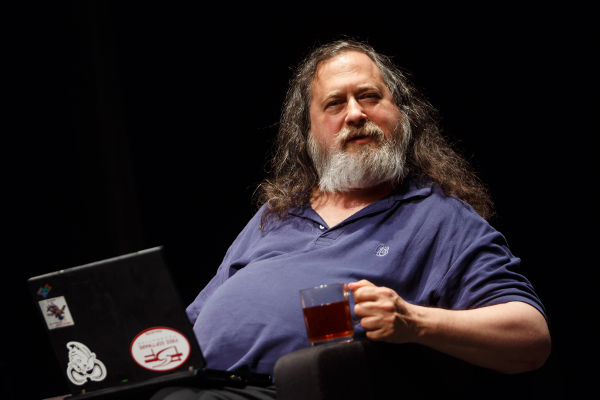
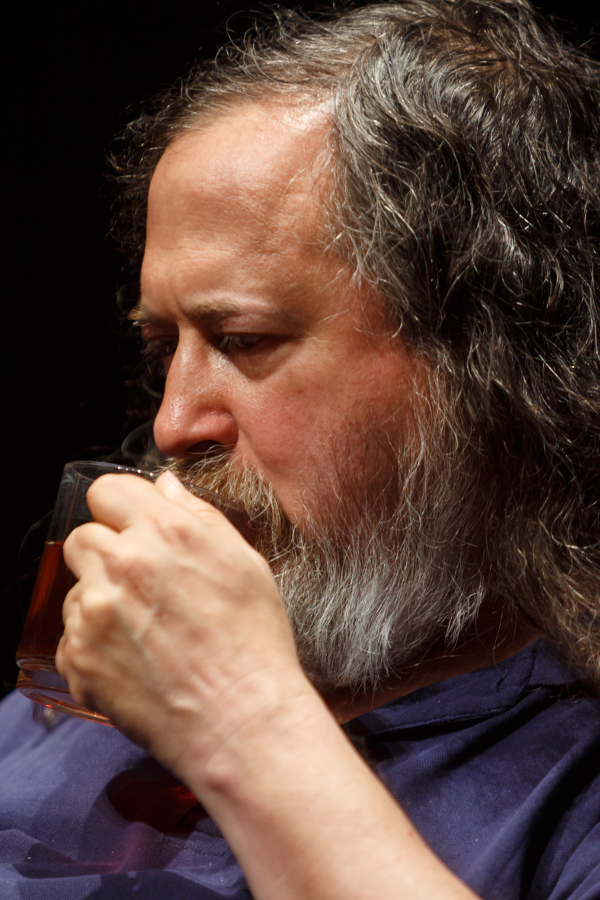
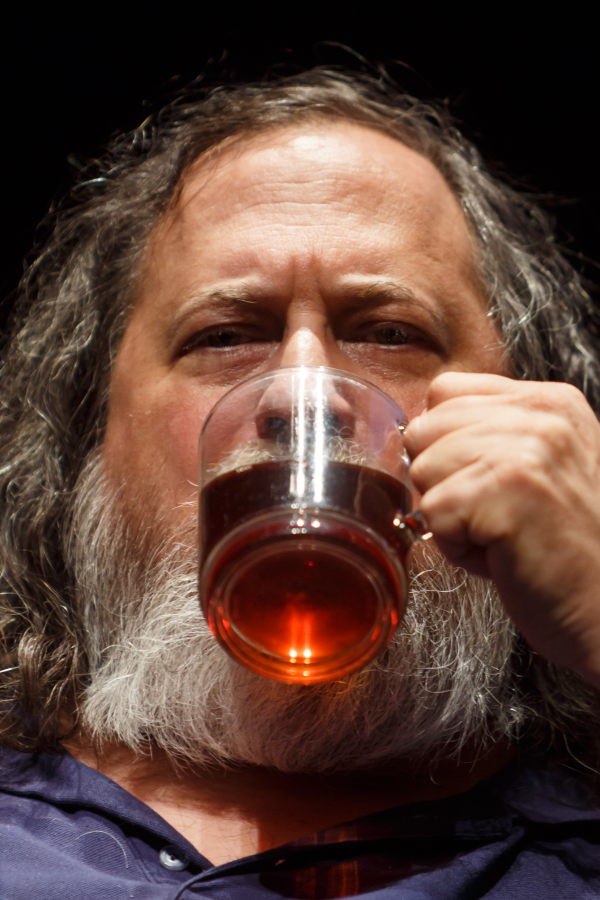

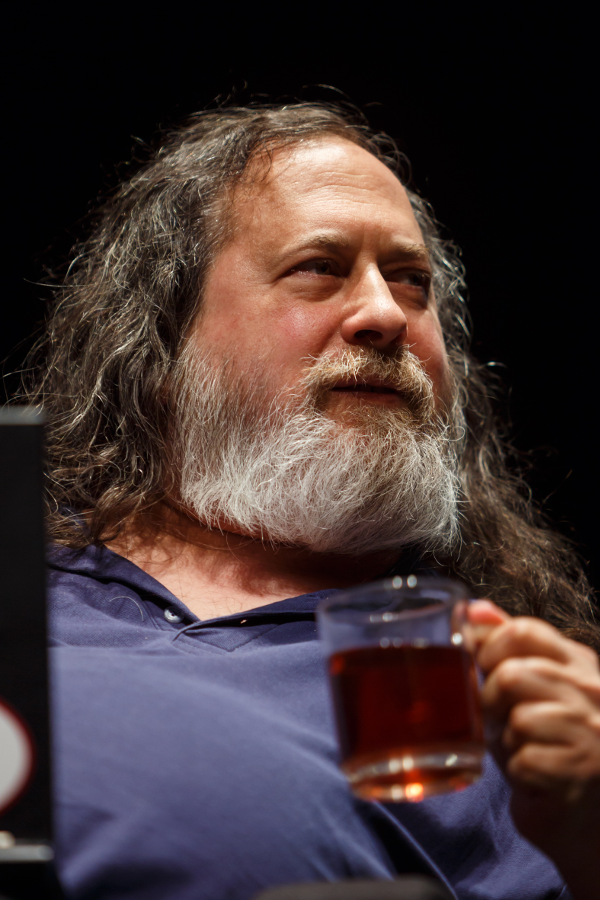
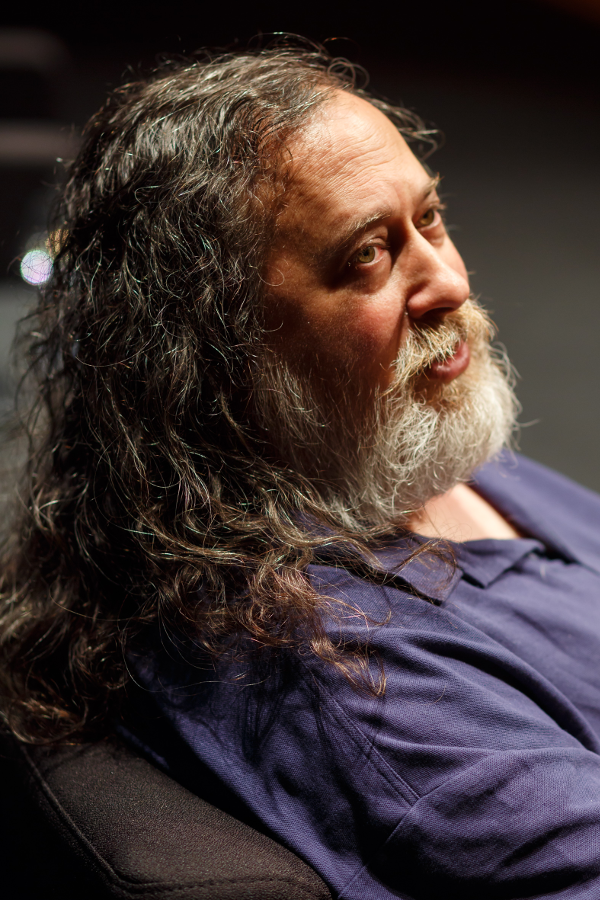
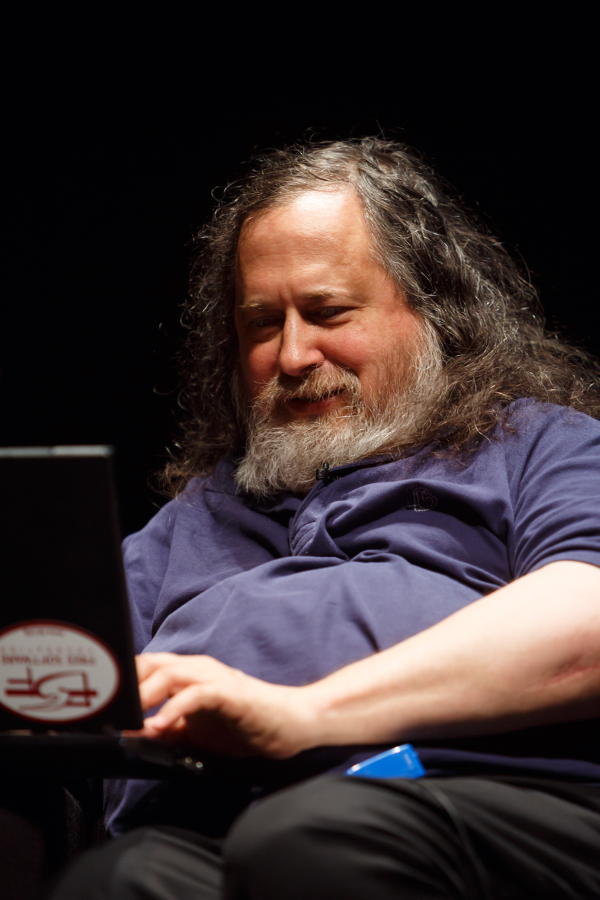
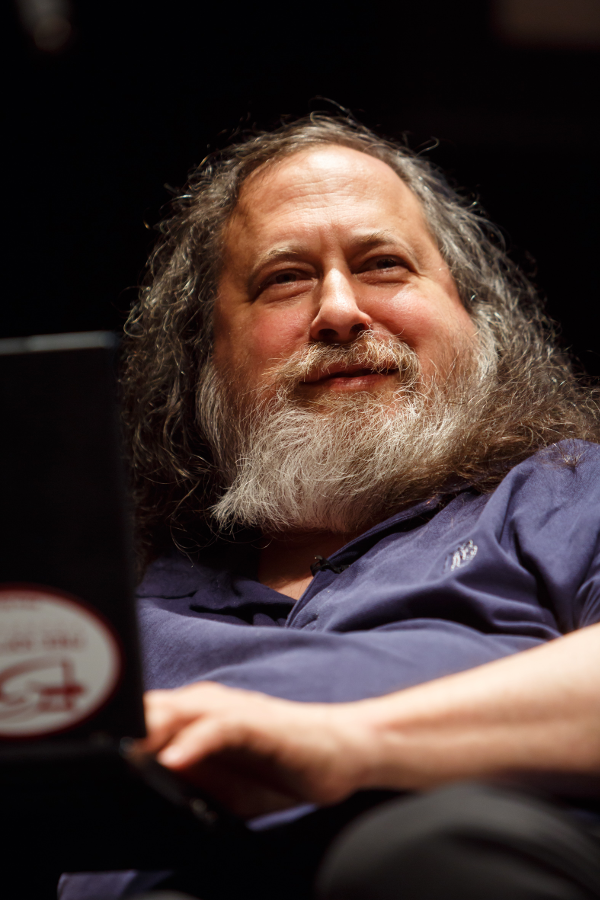

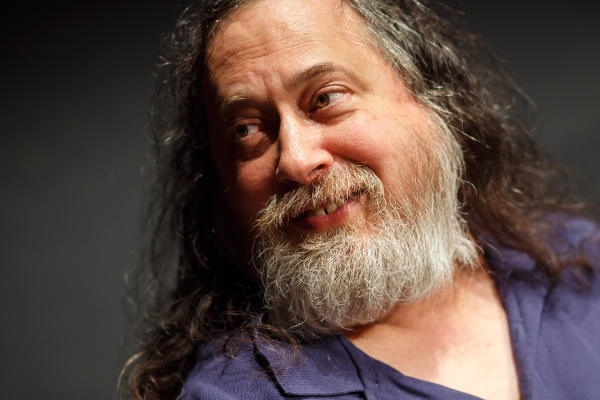
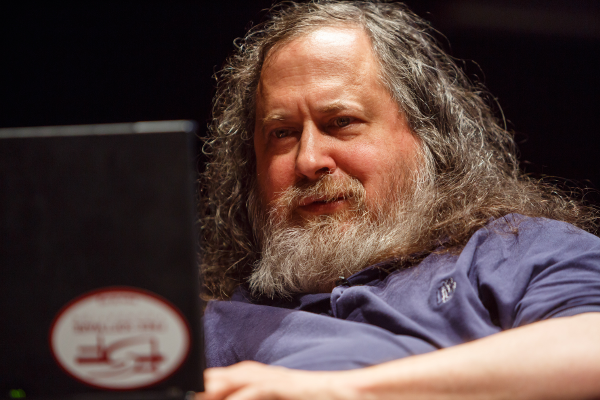
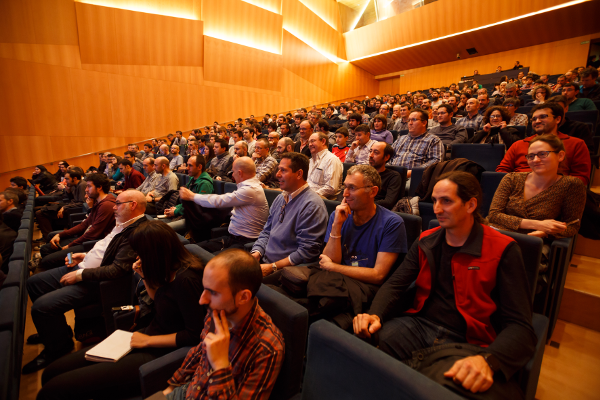
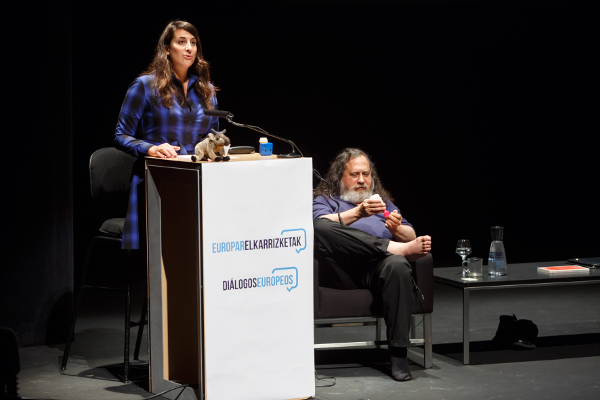
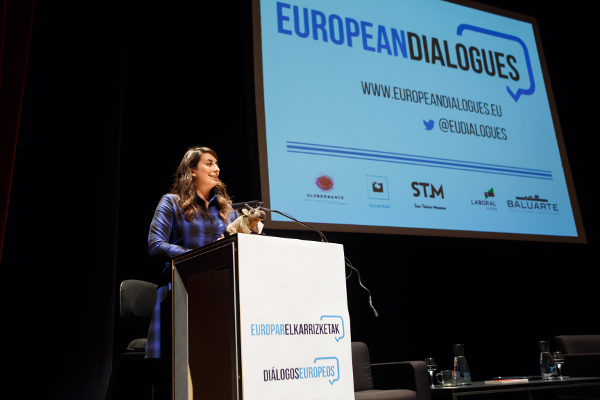
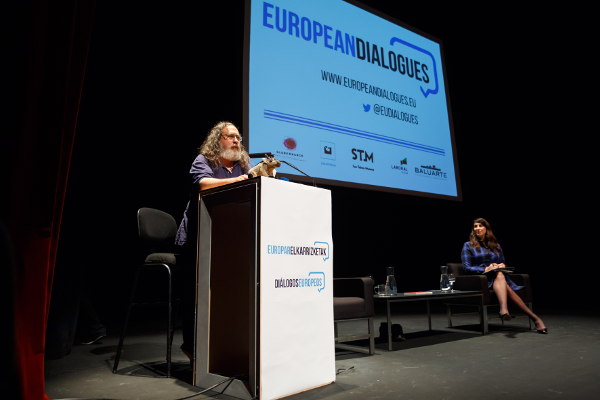
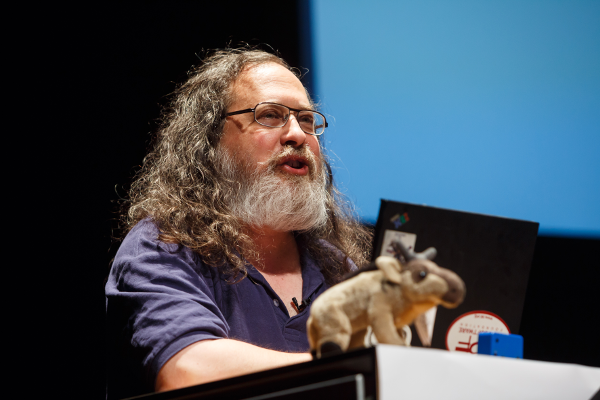
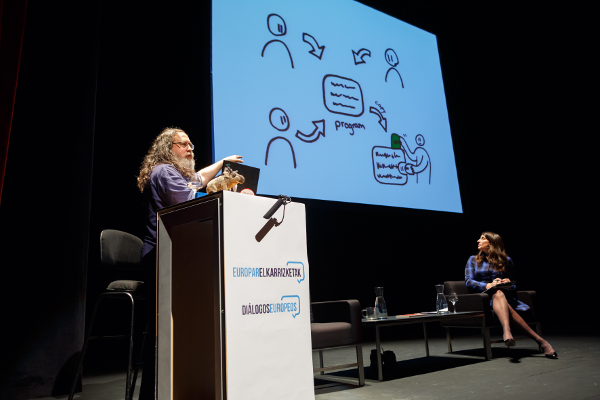
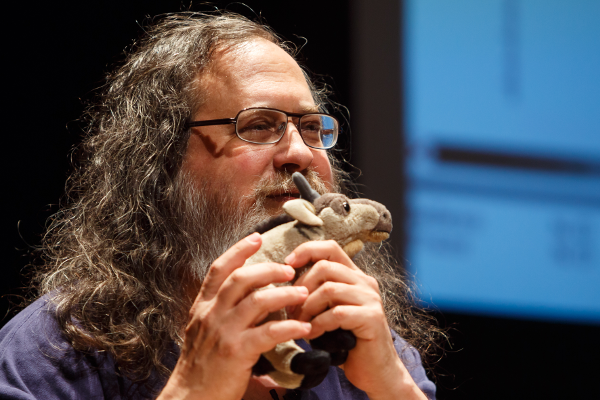
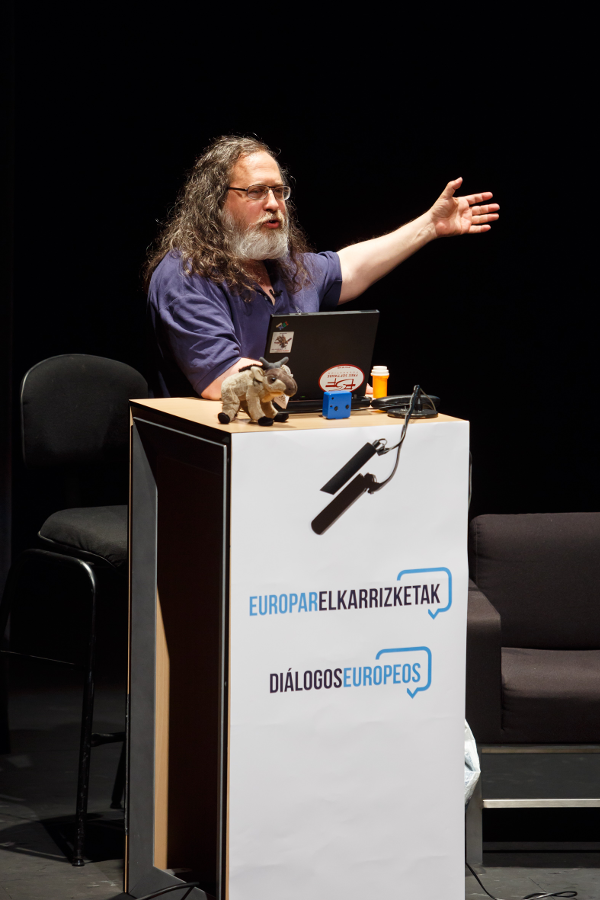
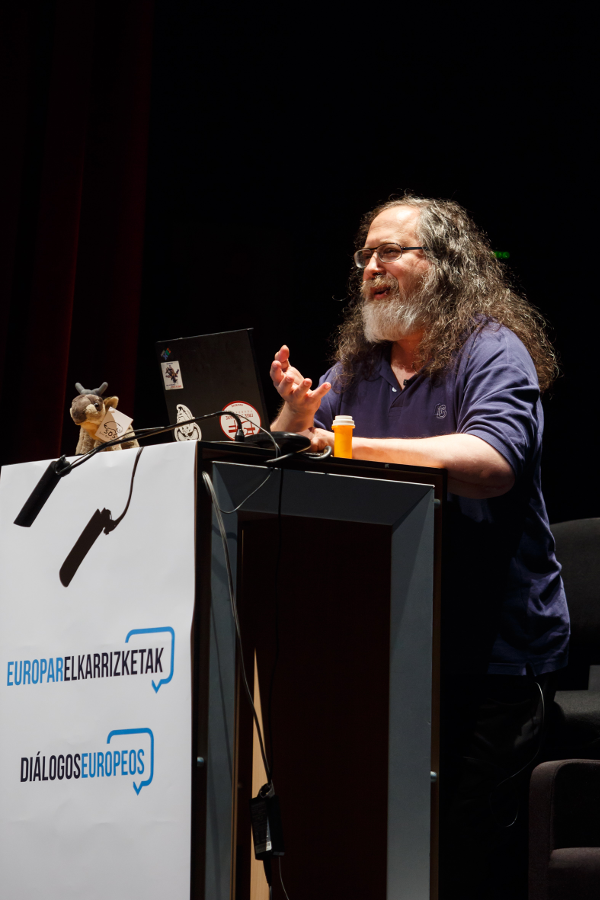
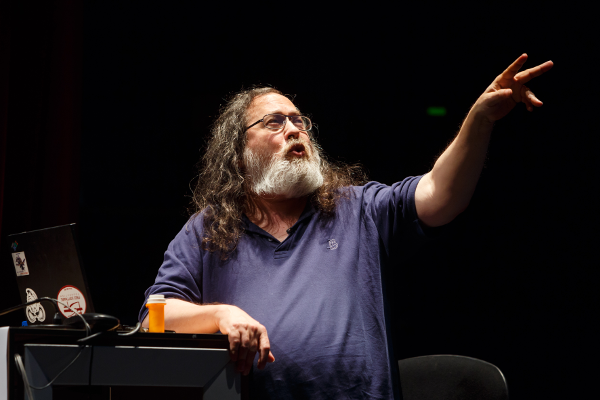
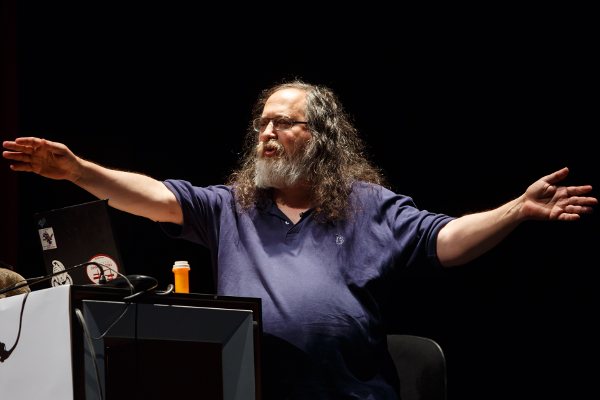
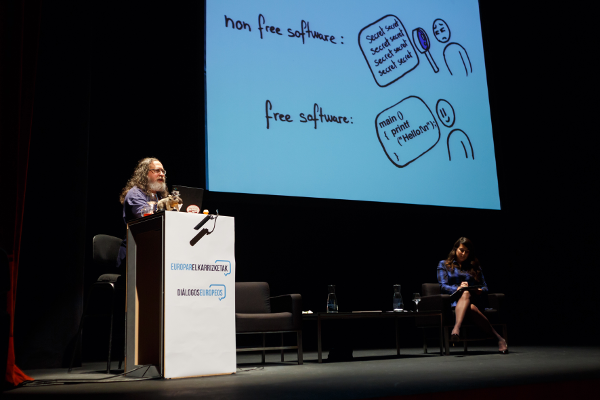
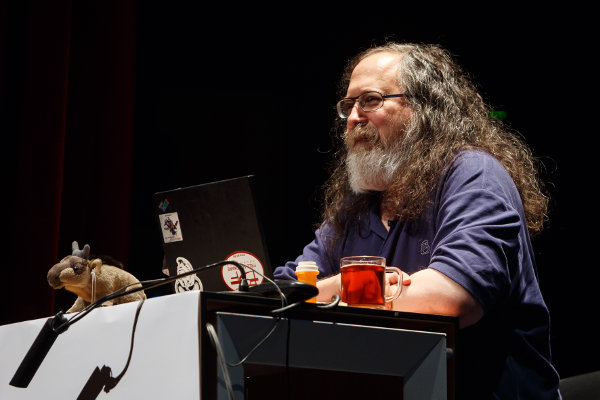
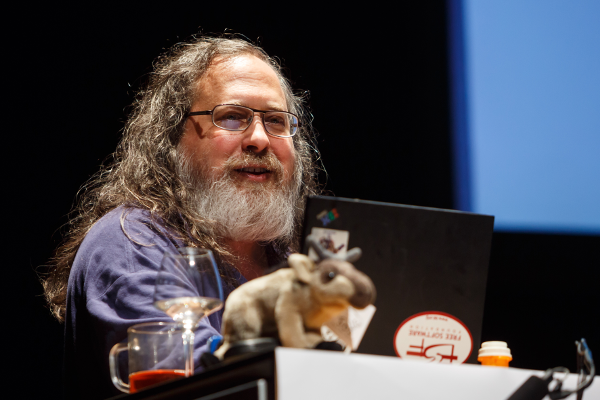
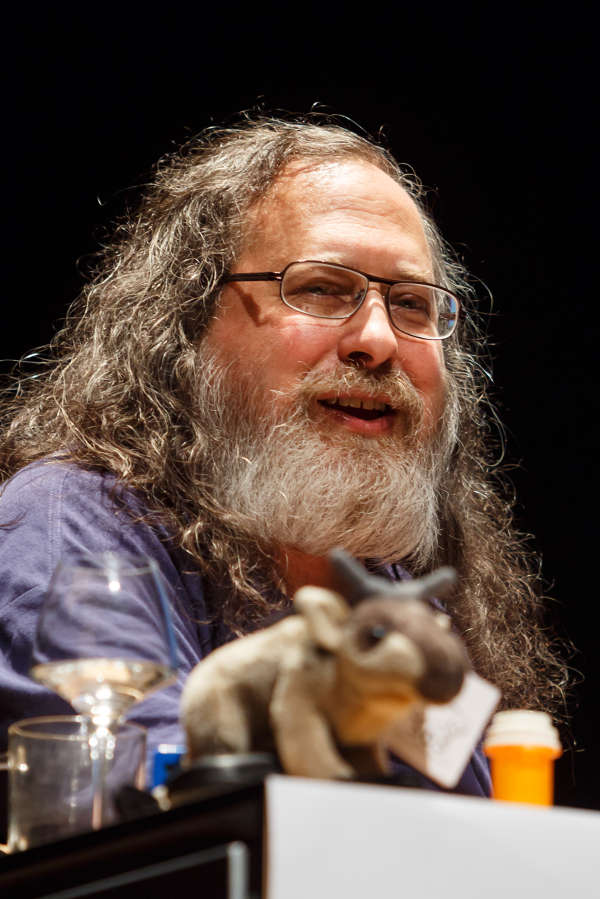
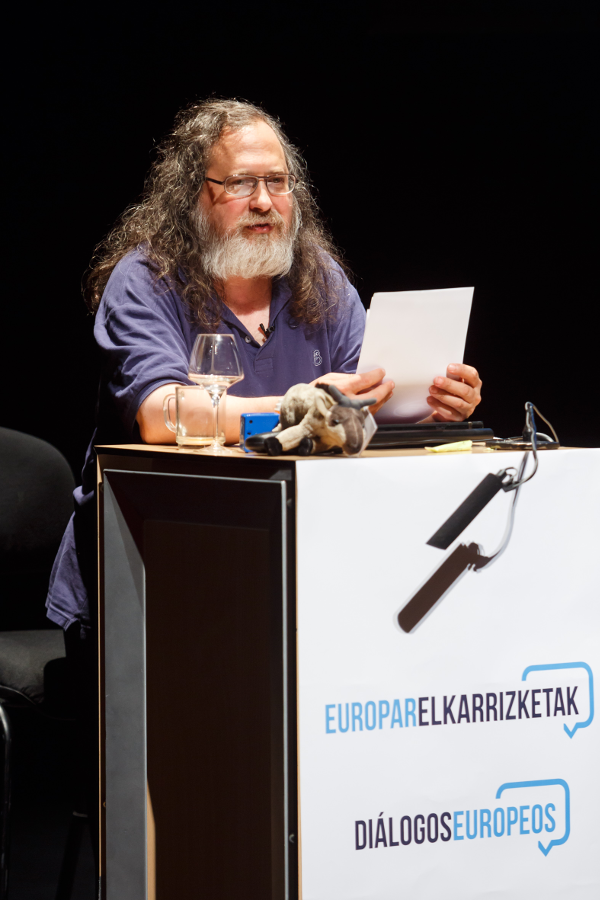
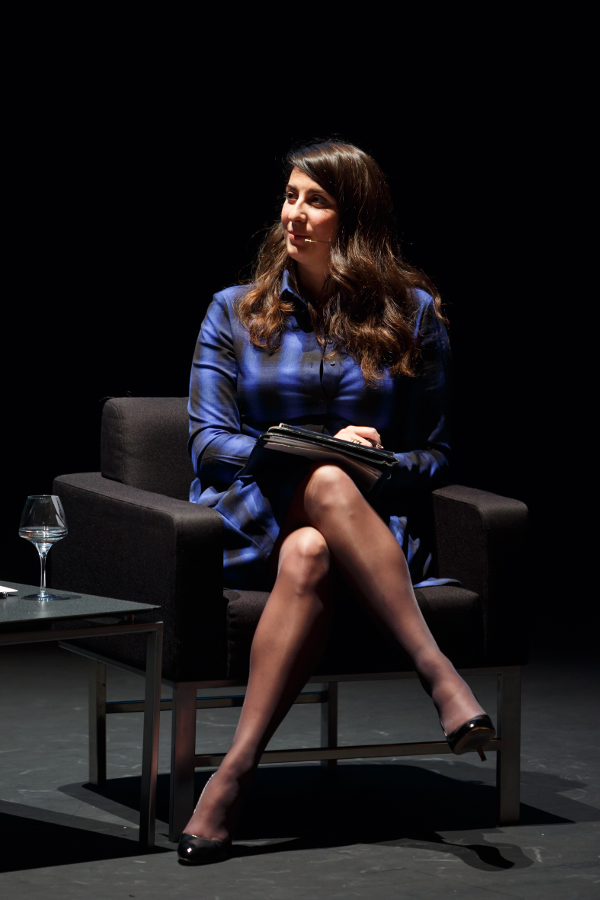

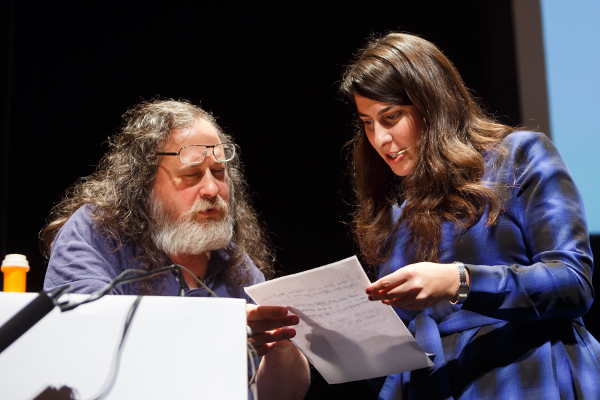
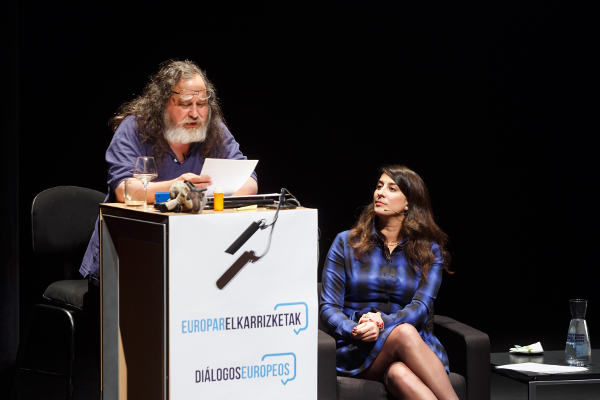
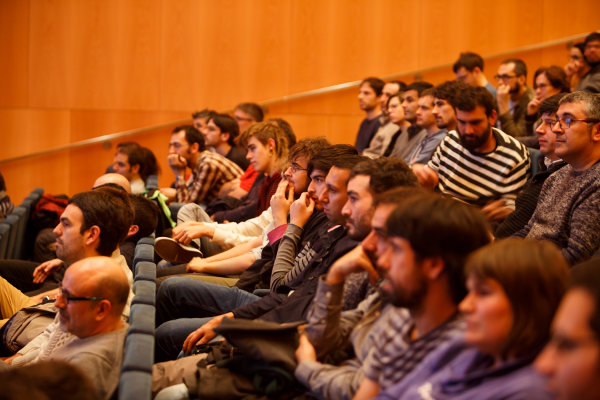
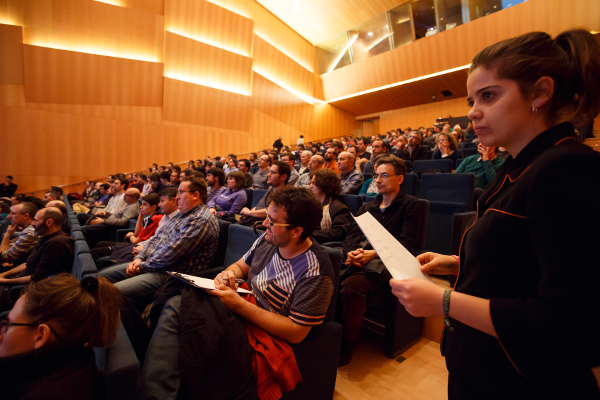
(Photos under CC BY-SA 3.0 and courtesy of European Dialogues.)
Katerina Yiannibas, Globernance (one of the sponsors of the talk and an institution for democratic governance) Project Manager and Director of European Dialogues, remarked:
The relationship between a European citizen and an ever increasingly complex stack of local, regional, national, and supranational governance merits a more diligent consideration of fundamental values and liberties. We invited Richard Stallman to join our debate and speak on the issue of privacy and one's control over one's data. The recent reform of EU data-protection rules shows that there is more work to be done to protect our individual liberty. Mr. Stallman, in an informative yet surprisingly entertaining intervention, reminded us that maintaining democracy and protecting the right to protest requires individual privacy vis-a-vis the State. The message he left us with was that we needn't become a hero, just less of a coward.
Please fill out our contact form, so that we can inform you about future events in and around Pamplona and San Sebastián. Please see www.fsf.org/events for a full list of all of RMS's confirmed engagements, and contact rms-assist@gnu.org if you'd like him to come speak.
Thank you to the organizers for having hosted RMS!
Friday Goodbye 2016 Free Software Directory IRC meetup: December 30th starting at 12 p.m. EST/17:00 UTC
jeudi 29 décembre 2016 à 20:48Participate in supporting the FSD by adding new entries and updating existing ones. We will be on IRC in the #fsf channel on irc.freenode.org.
Tens of thousands of people visit directory.fsf.org each month to discover free software. Each entry in the FSD contains a wealth of useful information, from basic category and descriptions, to providing detailed info about version control, IRC channels, documentation, and licensing info that has been carefully checked by FSF staff and trained volunteers.
While the FSD has been and continues to be a great resource to the world over the past decade, it has the potential of being a resource of even greater value. But it needs your help!
This week's theme is looking back on 2016. The Directory has gone through a lot of changes in the past year, with many different projects and themes focusing our work. With this last meeting of the year we will be looking back and focusing on our favorite projects and goals we started during the year. With 2017 just around the corner there is still a lot of work to do on these projects, so we want to cap the year off by making some real progress.
If you are eager to help and you can't wait or are simply unable to make it onto IRC on Friday, our participation guide will provide you with all the information you need to get started on helping the Directory today! There are also weekly FSD Meetings pages that everyone is welcome to contribute to before, during, and after each meeting.
The Licensing and Compliance Lab interviews Björn Schießle of Nextcloud
jeudi 29 décembre 2016 à 20:30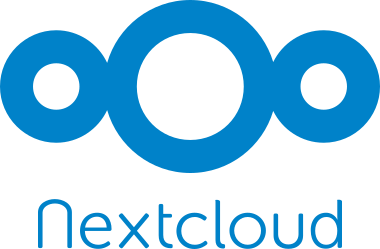
Björn has been developing federated technology for ownCloud and now Nextcloud since 2012. He is a computer scientist and has conducted research in the area of distributed robotics before he joined ownCloud and later on Nextcloud. Over the years he worked in many areas of Nextcloud with a special interest in privacy-respecting, distributed and federated networks. He has been active in the free software community for over than 20 years. As a long-time free software activist he has a deep understanding about the political, legal, and social aspects of software freedom.
Nextcloud provides a decentralized and free platform enabling people to stay in control of their data while leveraging all the advantages of the servers like synchronizing their files, calendars, and contacts across multiple devices. It also allows sharing data with people on the same server and outside servers while allowing you to work collaboratively on them. Nextcloud started 6 months ago as a fork of ownCloud by ownCloud founder Frank Karlitschek and a dozen of its core developers. Hundreds of people have joined since, and Nextcloud now consist of a globally diverse community, and a healthy and growing company which provides support to large enterprise customers.
What inspired you to work on Nextcloud?
Today more and more stuff is done remotely. People store files, address books and calendars online. They want to synchronize them across multiple devices and share them with their friends. But they do not have control over the servers hosting their data, or the data itself. The terms of service from the companies hosting are terrible and their software is proprietary. This results in a loss of freedom, control, and privacy. I think we in the free software movement need to provide a constructive answer to it. More than 30 years ago Richard Stallman founded the GNU Project to enable people to continue to use their computers without giving up their freedom. Today, Nextcloud tries to do the same, we want to enable people to continue to sync and share their data without losing their freedom and privacy. Providing such a solution based on free software is a challenging but also extremely motivating task.
How are people using it?
The great thing about Nextcloud is its flexibility. On one hand, people use it on a RaspberryPi with one or two users, and on the other hand Nextcloud is used by large organizations and enterprises with tens of thousands of users. As you can imagine, with varied users the use cases can be quite different. Sometimes Nextcloud is used as a file sync and share solution. Other people extend it with more collaboration features like Collabora Office which gives you a complete LibreOffice in your browser or the new voice/video chat we are working on. Many people leverage the complete power of Nextcloud by using it as a platform for which they and others build many great applications. Some of the most used applications are Calendar and Contacts, Notes, Tasks, a Newsreader, Mails and Music. No matter what you expect from your private server, the chances are high that it is already there and if not you are welcome to develop the next great application.
What features do you think really sets Nextcloud apart from similar software?
There are some projects which try to do similar things. Depending on to which you compare Nextcloud I think there are three main reasons that makes Nextcloud different.
First, Nextcloud really aims to become your private remote solution with everything you need. This means we want to provide everything users expects. This includes file sync and share but continues with collaboration features, contacts and calendar management, streaming your music, etc. You can see it as your personal construction kit for your server. You start with the Nextcloud server and then you extend it with the functionality you need to meet your requirements by adding various Nextcloud apps.
Second, Nextcloud is the only completely free software solution which does this. There are no hidden proprietary features, no contributor license agreement which gives some entities in the community more rights than others, or something similar. At the end of the day it is a free software project licensed under the GNU Affero General Public License version 3 (AGPL).
Last, it not only has a healthy, strong community but also a company behind it which makes sure anyone can use it and that it is well maintained and supported. The company is deeply committed to free software, collaboration, and doing the ethical thing.
Tells us more about the Cloud Federation
This is a really important topic for us. People should be able to set up their own server so that they stay in control of their data but at the same time they should still be able to collaborate with other people who might have their own Nextcloud. That's what we want to enable with Cloud Federation. Together with the Open Cloud Mesh initiative from GEANT. We developed a standard which enables people to share their data with people on the same server as well as with people on other servers. At the moment this works to share files across multiple servers. In the future we want to extend it to all other kind of data like address books, calendars, comments, and activities. Further we also want to make it possible to do audio/video calls across instances. For us it is really important that this becomes a standard used by as many solutions as possible. We don't want to create the next island. Therefore I'm proud that federated sharing for files works today between Nextcloud servers, and also with Pydio and ownCloud.
Why did you choose the GNU Affero General Public License v3 as Nextcloud's license?
Nextcloud exists as a free software project and as a company which provides services and support. We believe that a level playing field is extremely important to maintain and grow a healthy community, which consists of individual contributors, the Nextcloud company and other commercial entities. The AGPL provides exactly this. It is a license which ensures that everyone will always have the same rights to use, study, share and improve the software, no exception. Further, as a licenses based on the GNU General Public License and released by the Free Software Foundation we can be sure that we are using a well known and established license written in cooperation with experts from all over the world. We also believe it offers real benefits to customers and we try to explain that to them!
How can users (technical or otherwise) help contribute to Nextcloud?
Community is really important for us, all we do happens in the open. The code and our bug tracker is publicly available, we have IRC channels and a forum. That's where all the development happens. Of course the most obvious way to get involved is to improve the software together with us. You can work directly on the server, pick one of the many apps available or start writing your own app. But also non-programmers are welcome in all areas. People can help with translations, documentation, artwork, even our homepage, which serves for both the project and the company, regularly gets pull request from the community and we are happy to merge them. Beside that you can also help to create public awareness, talk about Nextcloud in your community, join one of the regular meetings, or start a new one.
What's the next big thing for Nextcloud?
One of the things we are working at the moment is the integration of a video/audio/text chat called Spreed. We already released an early version last week together with Nextcloud 11. It is based on webRTC and provides basic video/audio chat with a arbitrary number of participants. But many features are still missing like screen sharing, integration of a text chat and the integration of federation to enable the user to not only call people on the same server but also on other Nextcloud servers. Of course we also want to provide desktop and mobile apps. This means a lot of work ahead but also exciting times.
Enjoy this interview? Check out our previous entry in this series, featuring Micah Lee of GPG Sync.
A message from RMS: Support the Free Software Foundation
jeudi 29 décembre 2016 à 16:15Please make a donation to help us meet our fundraising goal of $450,000 by December 31st. With your gift, we can continue to push the frontiers of free software.
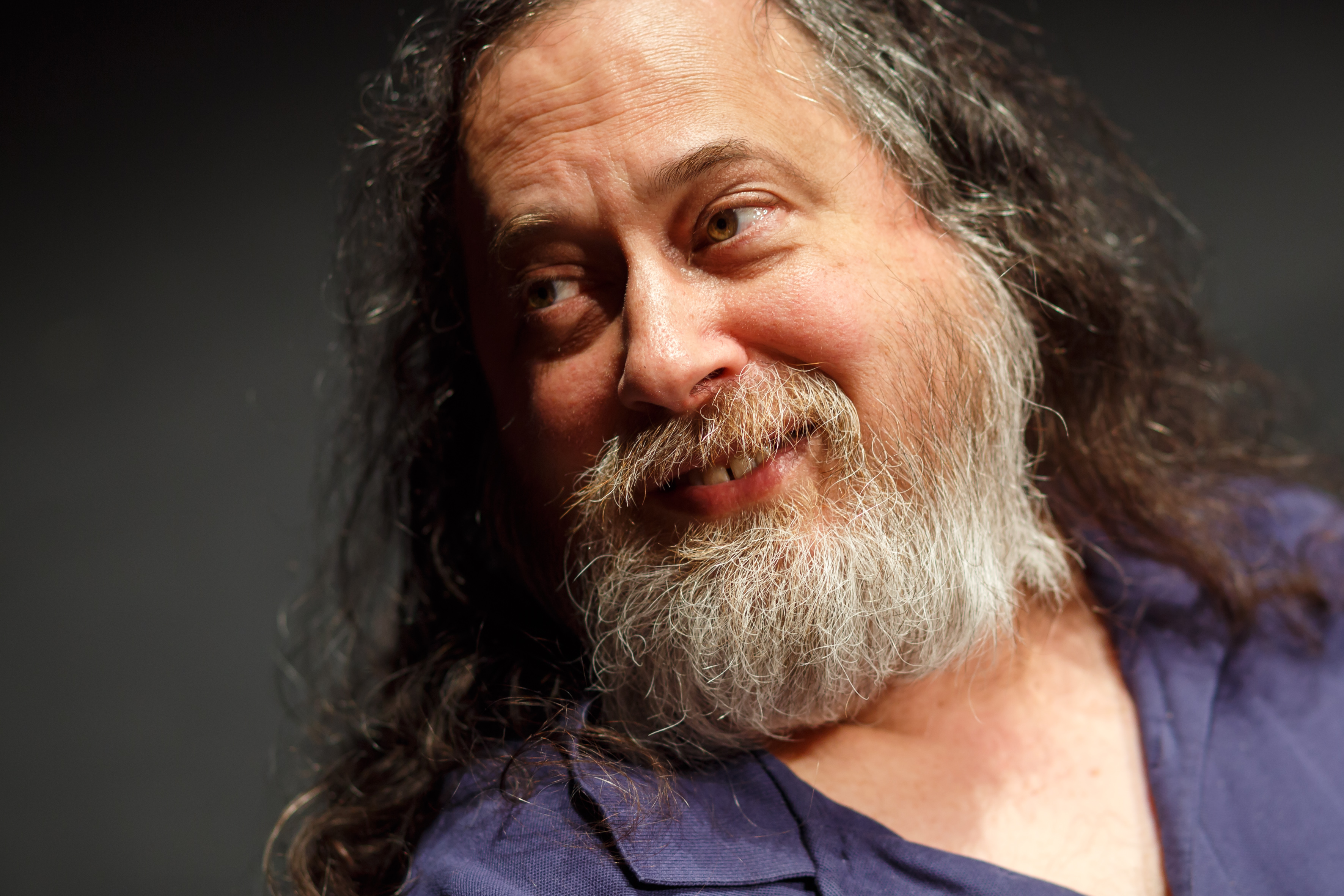 |
| Richard M. Stallman at the European Dialogues in Spain, November 2016 |
I announced the plan to develop the GNU operating system in 1983. GNU was to be a Unix-compatible operating system for timeshared computers and for workstation computers. Not PCs, though, because the PCs of 1983 were not powerful enough to run such a system. Neither were laptops, of course.
In 1992, when the kernel Linux was freed and filled the last gap in GNU, PCs had become more powerful. It was possible to run GNU on desktop PCs using Linux as the kernel. GNU/Linux in 1992 was "complete" in the sense that nothing essential was missing, but it was rudimentary in that many much-used proprietary applications had no free counterparts.
Nowadays many of those applications have been replaced, but some are missing. Meanwhile, new theaters of computing have come to exist, and the work of liberating them remains ahead of us.
All commercial mobile phones require proprietary software (in the modem processor that talks to the phone radio network) that has a universal back door: it can be changed remotely through the radio. It should be a felony to make such a product, but it isn't.
With funds, the FSF could launch a campaign to make that practice a felony. With funds, the FSF could develop a mobile phone that encapsulates the modem processor so as to make the phone, in a limited sense, safe to use.
On the other end of computing, many web sites' pages contain nonfree software (sent in the form of JavaScript code) which they install and run in the user's browser. In many cases that code spies on the user.
With funds, the FSF could develop free software front ends to enable Internet users to talk to various important web services without running any nonfree software to do it.
Meanwhile, freedom is threatened even at the level of the processors in PCs. The current generation of Intel and AMD processor chips are designed with vicious back doors that users cannot shut off. (In Intel processors, it's the "management engine".)
No users should trust those processors.
With funds, the FSF could campaign to pressure those companies to give us a way to shut those back doors off.
We also need to enforce the GNU General Public License (GNU GPL) against companies that regard its requirement to respect users' freedom as a nuisance. This too requires funds.
Why do people support the FSF? Because they appreciate the importance of the freedom that we defend, for them and for everyone. However, since 1998 we have had to make an explicit effort to spread awareness of this issue. In that year, a corporate-funded campaign to disconnect free software from our ideas began to rebrand free software as "open source" so as to disconnect it from our ideas of right and wrong. People who don't understand how proprietary software denies them freedom may not see what there is to fight for.
The FSF campaigns team spreads awareness of computing freedom. With more funds, we could hire additional staff to do more of this.
Please support the FSF today.
Donate and share this appeal with your friends.
Photo: CC BY-SA 3.0, courtesy of the European Dialogues.